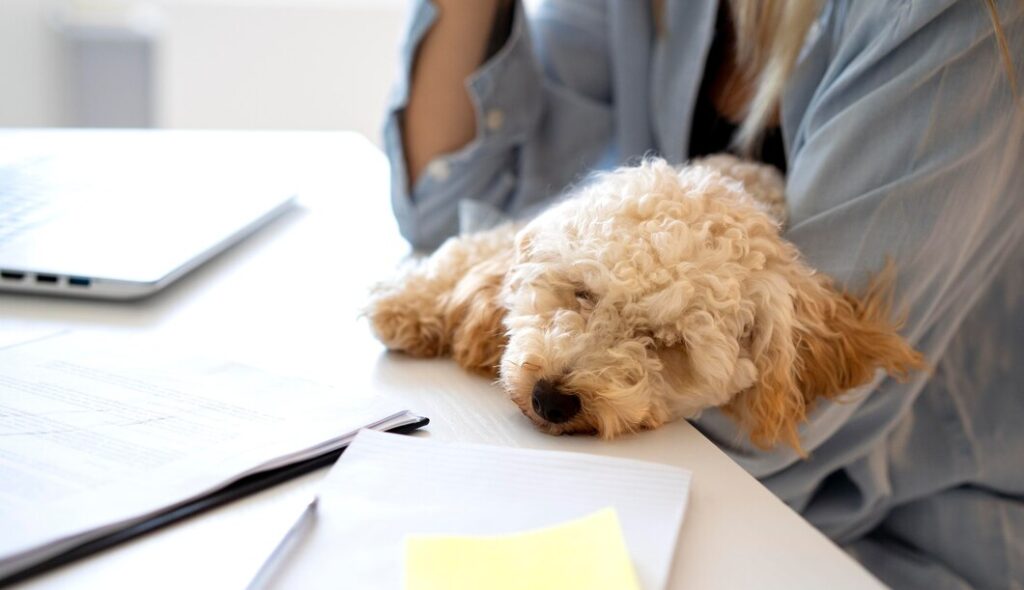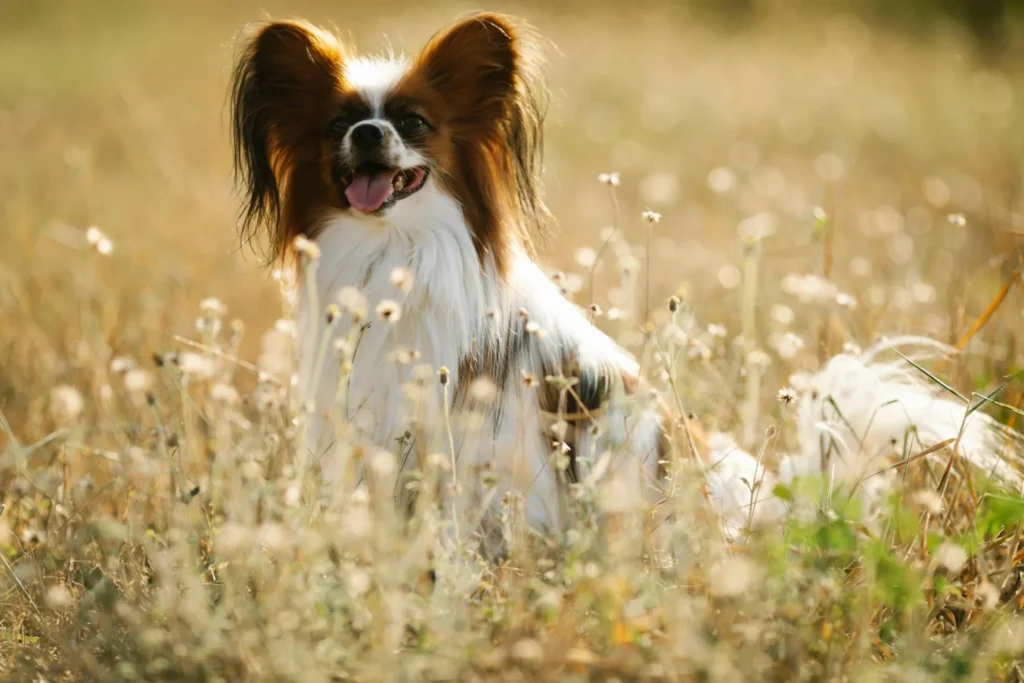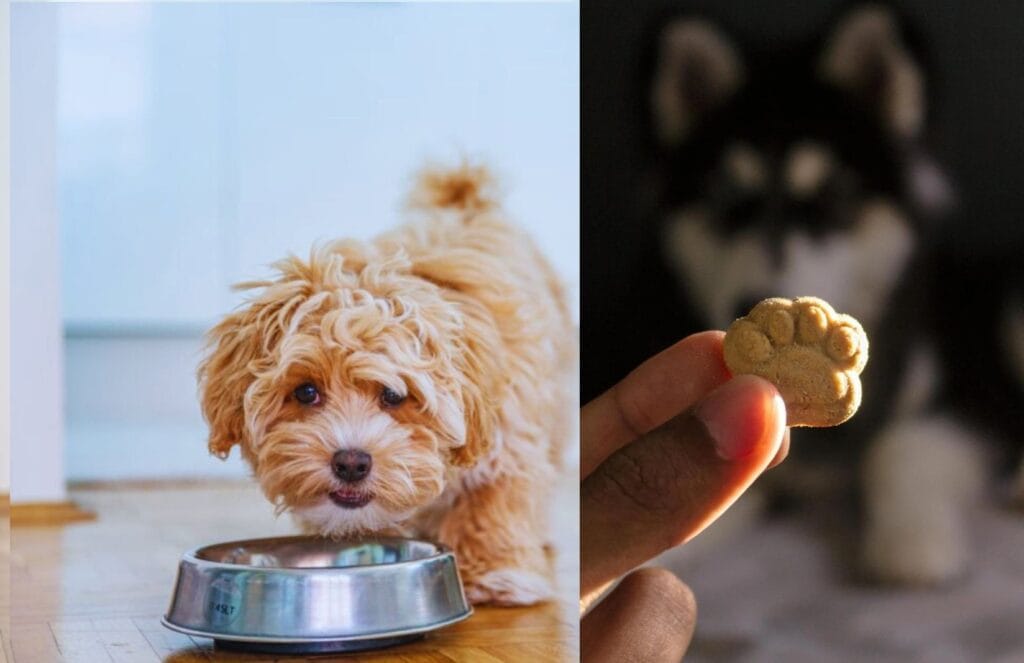Poodles are beloved for their intelligence, elegance, and hypoallergenic coats. However, like all dogs, they are susceptible to the occasional bout of gassiness and flatulence. While a few toots here and there are perfectly normal, excessive farting can be a sign of an underlying issue or dietary concern. In this comprehensive guide, we’ll explore the world of poodle farts, addressing common questions, identifying potential causes, and providing practical tips to help manage gassiness in your furry companion.
Do Poodles Fart a Lot?
The frequency of poodle farts can vary based on several factors, including diet, exercise habits, and individual sensitivities. However, according to a survey conducted by the Poodle Club of America, poodles rank about average among dog breeds when it comes to flatulence.
Poodle Fart Statistics
To better understand the prevalence of gassiness in poodles, let’s take a look at some key statistics:
| Poodle Size | Reported Gassiness (% of Owners) |
|---|---|
| Standard | 28% |
| Miniature | 32% |
| Toy | 26% |
Source: Poodle Club of America Poodle Health Survey
As the data suggests, miniature poodles may be slightly more prone to gassiness compared to their standard and toy counterparts, but the differences are relatively minor.
Are Poodles Gassy?
While poodles are not generally considered an excessively gassy breed, they can certainly experience bouts of flatulence from time to time. Several factors can contribute to poodle gassiness, including:
- Diet: Certain foods, particularly those high in fiber, dairy, or difficult-to-digest proteins, can lead to increased gas production in poodles.
- Food Sensitivities: Poodles may experience gassiness if they have sensitivities or intolerances to specific ingredients in their diet.
- Gulping Air: Rapid eating or excessive panting can cause poodles to swallow excess air, leading to gas buildup and flatulence.
- Digestive Issues: Underlying digestive problems, such as inflammatory bowel disease, pancreatitis, or intestinal parasites, can contribute to gassiness in poodles.
- Stress or Anxiety: Emotional factors, like stress or anxiety, can disrupt a poodle’s digestive process and lead to increased gas production.

Why Do Poodles Fart?
Poodle farts, like those of any other dog, are a byproduct of the digestive process. As food breaks down in the digestive tract, gases are produced and eventually expelled through flatulence. Here are some common reasons why poodles might experience increased farting:
- Dietary Changes: Sudden changes in diet or the introduction of new foods can disrupt a poodle’s digestive system, leading to increased gas production and farting.
- High-Fiber Foods: While fiber is an essential part of a healthy diet, too much fiber can sometimes cause excessive gas in poodles.
- Dairy Products: Many dogs, including poodles, can have difficulty digesting lactose, the sugar found in dairy products, leading to gas and flatulence.
- Table Scraps: Table scraps, especially those containing spicy or fatty foods, can be difficult for poodles to digest and may contribute to gassiness.
- Swallowing Air: Poodles who gulp their food or water quickly may swallow excess air, resulting in burping and farting.
When Do Poodles Fart?
Poodles can experience flatulence at any time, but there are certain situations when it may be more prevalent:
- After Meals: As their digestive system works to break down food, poodles may experience increased gas production and farting in the hours following a meal.
- During Exercise: Physical activity can stimulate the digestive process and lead to the expulsion of gas through farting.
- When Excited or Anxious: Emotional states, such as excitement or anxiety, can impact a poodle’s digestive function and contribute to gassiness.
- At Night: Some poodles may experience increased farting during sleep or periods of rest when their digestive system is less active.
How to Stop Poodles from Being Gassy or Farting
While a little flatulence is perfectly normal, excessive gassiness can be uncomfortable for both poodles and their owners. Here are some tips to help reduce poodle farts and manage gassiness:
- Diet Adjustments: Gradually transition to a high-quality, easily digestible diet formulated for your poodle’s life stage and size. Avoid sudden dietary changes and limit table scraps.
- Digestive Supplements: Probiotics, enzymes, and other digestive supplements can aid in breaking down food and reducing gas production.
- Slow Down Eating: Use puzzle feeders or slow-feeder bowls to prevent gulping and excessive air intake during meals.
- Increase Exercise: Regular exercise can help stimulate the digestive system and prevent gas buildup.
- Identify Sensitivities: Work with your veterinarian to identify and eliminate any potential food sensitivities or intolerances contributing to gassiness.
- Manage Stress: Provide a calm, stress-free environment for your poodle, and consider calming supplements or behavior modification techniques if anxiety is a factor.
- Seek Veterinary Care: If excessive gassiness persists or is accompanied by other symptoms, consult your veterinarian to rule out underlying health issues.
Medical Causes of Excessive Flatulence in Poodles
While occasional farting is a normal part of a poodle’s digestive process, excessive or persistent flatulence can sometimes be a sign of an underlying medical condition. Here are some common health-related causes of excessive gassiness in poodles:
- Inflammatory Bowel Disease (IBD): IBD is a chronic condition characterized by inflammation in the digestive tract, which can lead to gas, bloating, and flatulence.
- Exocrine Pancreatic Insufficiency (EPI): This condition occurs when the pancreas doesn’t produce enough digestive enzymes, leading to poor nutrient absorption and increased gas production.
- Small Intestinal Bacterial Overgrowth (SIBO): An imbalance of bacteria in the small intestine can cause excess gas production and flatulence.
- Food Allergies or Intolerances: Poodles with sensitivities or allergies to certain foods may experience digestive issues, including gas and bloating.
- Gastrointestinal Parasites: Intestinal parasites, such as giardia or hookworms, can disrupt the digestive process and contribute to excessive flatulence.
- Gastrointestinal Obstruction: Partial obstructions in the digestive tract can prevent proper digestion and lead to increased gas production.
- Certain Medications: Some medications, like antibiotics or steroids, can alter the gut microbiome and cause side effects like flatulence.
If your poodle is experiencing excessive and persistent flatulence, it’s essential to consult with your veterinarian to rule out any underlying medical conditions. Early diagnosis and proper treatment can help alleviate the discomfort and address the root cause of the problem.
Treating Excessive Flatulence in Poodles
Once your veterinarian has identified the underlying cause of your poodle’s excessive flatulence, they may recommend one or more of the following treatment options:
- Dietary Changes: Your vet may suggest switching to a specialized diet or eliminating certain ingredients to address food sensitivities or intolerances.
- Probiotics and Digestive Enzymes: These supplements can help restore a healthy gut microbiome and improve digestion, reducing gas production.
- Antibiotics or Anti-inflammatory Medications: For conditions like IBD or SIBO, your vet may prescribe antibiotics or anti-inflammatory drugs to reduce inflammation and restore proper digestive function.
- Deworming Medication: In cases of gastrointestinal parasites, your vet will provide the appropriate deworming medication to eliminate the parasites and alleviate associated symptoms.
- Surgery: In severe cases of gastrointestinal obstruction or other structural issues, surgical intervention may be necessary to correct the problem and restore proper digestive function.
- Stress Management: If stress or anxiety is contributing to your poodle’s flatulence, your vet may recommend calming supplements, pheromone diffusers, or behavior modification techniques.
It’s important to follow your veterinarian’s treatment plan closely and attend all follow-up appointments to ensure your poodle’s condition is properly managed and any necessary adjustments are made to their treatment regimen.
Case Study: Addressing Excessive Flatulence Due to Food Allergies
To illustrate the importance of identifying and addressing the root cause of excessive flatulence, let’s explore a real-life case study:
Meet Coco, a 3-year-old miniature poodle who had been experiencing persistent gas and bloating for several months. Despite dietary changes and over-the-counter remedies, her owners couldn’t seem to find relief for her excessive flatulence.
After consulting with their veterinarian, Coco underwent a series of tests, including a food elimination trial and allergy testing. The results revealed that Coco had developed a sensitivity to chicken, a common protein source in many commercial dog foods.
Based on these findings, Coco’s veterinarian recommended transitioning her to a specialized hypoallergenic diet that excluded chicken and other potential allergens. Additionally, they prescribed a short course of probiotics and digestive enzymes to help restore a healthy gut microbiome.
Within a few weeks of implementing the new diet and treatment plan, Coco’s owners noticed a significant improvement in her digestive health. Her excessive flatulence had subsided, and she appeared more comfortable and energetic.
This case study highlights the importance of working closely with a veterinarian to identify and address the root cause of excessive flatulence in poodles. By properly diagnosing and treating Coco’s food allergies, her owners were able to alleviate her discomfort and restore her overall well-being.
Expert Insight: Managing Poodle Flatulence
To provide further guidance on managing poodle flatulence, let’s hear from Dr. Emily Thompson, a certified veterinary nutritionist:
“Occasional flatulence is perfectly normal in poodles, but excessive gassiness can be a sign of an underlying issue or dietary imbalance,” explains Dr. Thompson. “The key is to identify and address the root cause, whether it’s a food sensitivity, digestive disorder, or improper diet.”
Dr. Thompson emphasizes the importance of a balanced, high-quality diet tailored to a poodle’s specific needs.
“A diet rich in easily digestible proteins, complex carbohydrates, and moderate levels of fiber can help reduce gas production and promote healthy digestion in poodles,” she says. “However, it’s essential to avoid sudden dietary changes and to gradually transition to a new food to prevent digestive upset.”
For poodles with persistent gassiness, Dr. Thompson recommends working closely with a veterinarian to rule out underlying health issues and develop a personalized dietary plan.
“In some cases, digestive supplements, such as probiotics or enzymes, can be beneficial in supporting gut health and reducing flatulence,” she adds. “But it’s crucial to consult with a professional to ensure you’re using the right products and dosages for your poodle’s specific needs.”
By addressing any dietary or health concerns, providing appropriate exercise and stress management, and practicing good feeding habits, poodle owners can help minimize excessive flatulence and ensure their furry companions remain comfortable and gas-free.
FAQs: Common Questions About Poodle Farts
Q: Is it normal for my poodle to fart occasionally?
A: Yes, it’s perfectly normal for poodles to experience occasional flatulence. However, excessive or persistent farting may indicate an underlying issue that requires attention.
Q: Do poodles fart more than other breeds?
A: No, poodles are not generally considered to be excessively gassy compared to other breeds. Their flatulence levels tend to be about average.
Q: Can certain foods cause more farting in poodles?
A: Absolutely. High-fiber foods, dairy products, table scraps, and sudden dietary changes can all contribute to increased gas production and farting in poodles.
Q: What can I do to reduce my poodle’s gassiness?
A: Gradually transition to a high-quality, easily digestible diet, use slow-feeder bowls, provide regular exercise, and consult with your veterinarian to rule out any underlying health issues or food sensitivities.
Q: Is excessive farting a sign of a serious health problem in poodles?
A: While occasional flatulence is normal, excessive or persistent gassiness accompanied by other symptoms, such as vomiting or diarrhea, may indicate a more serious underlying condition that requires veterinary attention.
Conclusion
Poodle farts may not be the most glamorous topic, but understanding and addressing excessive flatulence is an essential aspect of responsible poodle ownership. While the occasional toot is perfectly normal and even expected, persistent or excessive gassiness can be a sign of an underlying issue that requires attention.
Throughout this comprehensive guide, we’ve explored the various causes of poodle flatulence, from dietary factors to potential medical conditions. We’ve learned that simple adjustments, such as transitioning to a high-quality, easily digestible diet, addressing food sensitivities, and incorporating digestive supplements, can often help alleviate excessive gas production.
However, in cases where excessive flatulence persists or is accompanied by other symptoms, it’s crucial to seek veterinary guidance and undergo a thorough evaluation. Conditions like inflammatory bowel disease, exocrine pancreatic insufficiency, or gastrointestinal parasites may require specialized treatment plans to restore proper digestive health and alleviate discomfort.
By working closely with a veterinarian, following targeted treatment protocols, and implementing proactive management strategies, poodle owners can effectively address excessive flatulence and promote their furry companions’ overall well-being.
Remember, flatulence is a natural bodily function, and a little gas here and there is nothing to be concerned about. However, when it becomes excessive or disruptive, it’s a sign that something needs attention. By prioritizing your poodle’s digestive health and being attentive to any changes or concerns, you can ensure a comfortable, gas-free environment for both you and your furry friend.
So, the next time your poodle lets one rip, take a moment to appreciate the humor and quirks of our canine companions. But if the toots become too frequent or persistent, don’t hesitate to consult with your veterinarian and take proactive steps to address the issue. With the right approach and a little patience, you can help your poodle maintain a healthy, gas-free lifestyle, allowing you both to enjoy a harmonious, flatulence-free relationship for years to come.



